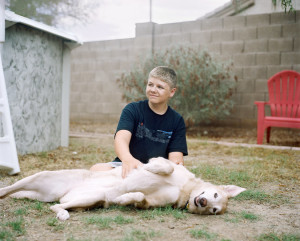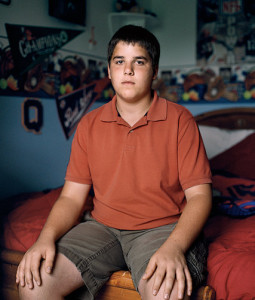Mark Macluskie and Matt Tremblay both had one thing in common growing up, they both suffered from autism. Now, both boys no longer have autism and people are starting to realize that children who grow up with symptoms of autism, its possible to grow out of it.
At first, everything about L.’s baby boy seemed normal. He met every developmental milestone and delighted in every discovery. But at around 12 months, B. seemed to regress, and by age 2, he had fully retreated into his own world. He no longer made eye contact, no longer seemed to hear, no longer seemed to understand the random words he sometimes spoke. His easygoing manner gave way to tantrums and head-banging. âHe had been this happy, happy little guy,â L. said. âAll of a sudden, he was just fading away, falling apart. I canât even describe my sadness. It was unbearable.â More than anything in the world, L. wanted her warm and exuberant boy back.
In the months and years that followed, the two women spent hours on the phone and at each otherâs homes on the East Coast, sharing their fears and frustrations and swapping treatment ideas, comforted to be going through each step with someone who experienced the same terror and confusion. When I met with them in February, they told me about all the treatments they had tried in the 1990s: sensory integration, megadose vitamins, therapeutic horseback riding, a vile-tasting powder from a psychologist who claimed that supplements treated autism. None of it helped either boy.
Autism is considered a lifelong developmental disorder, but its diagnosis is based on a constellation of behavioral symptoms â social difficulties, fixated interests, obsessive or repetitive actions and unusually intense or dulled reactions to sensory stimulation â because no reliable bio-markers exist. Though the symptoms of autism frequently become less severe by adulthood, the consensus has always been that its core symptoms remain. Most doctors have long dismissed as wishful thinking the idea that someone can recover from autism. Supposed cures have been promoted on the Internet â vitamin shots, nutritional supplements, detoxifiers, special diets, pressurized rooms filled with pure oxygen and even chelation, the potentially dangerous removal of heavy metals from the body. But no evidence indicates that any of them can alleviate any of the core symptoms of autism, let alone eradicate it.
Matt remembers a few things about being an autistic preschooler, like how he used to flap and rock. He remembers his fixation with the Little People School Bus and the calm, deep focus he felt when he drove the toy around and around the kitchen for hours, dropping Little People off all over the floor, then picking them up again. Mild echoes from his autistic days remain. He told me that he still canât stand wearing tight or stiff clothes, so he opts for sweatpants or loose khakis instead of jeans. And even though heâs a jokester himself, by his own reckoning he still occasionally has difficulty figuring out when someone else is kidding. âI think he still sometimes interprets things more literally than other people do,â said his mother, a pediatric nurse. âMaybe thatâs because he had to learn how to read peopleâs emotions, facial expressions and mannerisms, where other kids just know, just learned it automatically.â
For many parents, it is surely tempting to scrutinize the new studies for hidden clues or a formula for how to undo autism. But many mysteries still remain about autismâs trajectory, and researchers urge parents to keep the results in perspective. âI see a lot of parents of 2-year-olds,â Catherine Lord says, âwho have heard stories about kids growing out of autism, and they tell us, âI want my kid to be one of those kids.â â She reminds them that only a minority of children lose their symptoms, and she counsels parents to focus instead on helping their child reach his or her potential, whatever it is, instead of feeling that nothing short of recovery is acceptable. âWhen you get too focused on âgetting to perfect,â you can really hurt your child. A typical kid fights back against that kind of pressure, but a kid with autism might not. Itâs fine to hope â itâs good to hope â but donât concentrate so much on that hope that you donât see the child in front of you.â
Also Tune in for Mark Macluskie Radio Show “The Tech Team” for the latest episode “The Tech Team with Mark and Dillon and the Funniest Show Ever” Tune in for other shows every Tuesday 5pm Pacific Time on the Voiceamerica Kids Channel. The Tech Team will explore all things STEM (Science, Technology, Engineering and Math) including robotics and programming. Tune in for the opportunity to learn about fun how-to projects, follow the First and Vex robotics competitions and connect and learn from kids and adults from all over the country. Mark and Dillon will explore the newest trends in technology, review new products and interview leaders and scientists who are changing the world we live in. We will answer a question of the week; have a short weekly segment on rising above autism, and be sure to stay tuned for our technology tip of the week. We are excited to share our interest in robotics, engineering, science and technology with kids across America.
For the Full Article read more at The New York Times By Ruth Padawer.  You can also watch the video featuring Mark Macluskie and Matt Tremblay telling their story with their family at ABC News.








